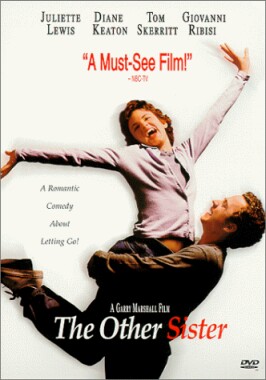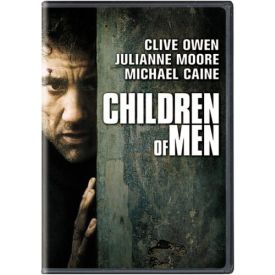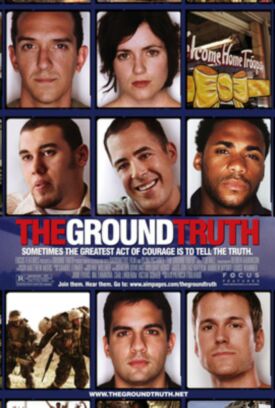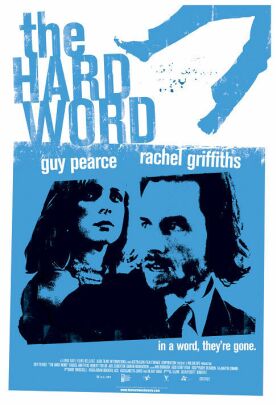Where the Heart Is
Once upon a time, Hollywood’s stock-in-trade was the “wom-jeop” movie, designed to appeal to the chivalrous instincts of the boys and young men for whom it was intended by placing an attractive woman in jeopardy and then supplying a handsome young hero with whom the youths could identify themselves to rescue her. Its post-feminist equivalent might be called the wom-vic movie, designed to appeal to an audience of women and men whose new age gallantry consists of acquiescence in the independent woman’s romance of victimhood. Of course you still need a sort-of rescuer, so powerful even now is the image of a wedding as symbol of a happy ending. But now the rescuer is a soft, sensitive girly-man, a man who wins the fair maid’s heart by showing his vulnerabilities and his capacity for caring and nurturing rather than by plucking her from out of the path of danger. And until he comes along, life for the wom-vic is just one long succession of bad luck and ill-usage at the hands of the Patriarchy.
Where the Heart Is
, directed by Matt Williams from a script by Lowell Ganz and Babaloo Mandel, is a perfect wom-vic movie. Natalie Portman plays Novalee Nation, a nearly illiterate and pregnant 17-year old from Tennessee who is abandoned by her loutish beau, Willy Jack Pickens (Dylan Bruno), at a Wal-Mart in Oklahoma. Willy Jack continues on to California, via a detour to jail, where he dreams of stardom as a country and western singer, while Novalee has her baby where she has taken up residence: in the aisles of the Wal-Mart after hours. The film toys with the idea of saying something interesting about Novalee’s brief moment of celebrity as the mother of “the Wal-Mart baby” but then thinks better of it. Her fame is only used to bring on to the stage two further exploiters and victimizers — her long lost mother, played in a brilliant little cameo by Sally Field, and a couple of fanatical Christian fundamentalists from Midnight, Mississippi — and another, even more spectacular victim, a nurse called Lexie (Ashley Judd).
The Christians profess to find Novalee’s newborn daughter “an abomination in the sight of the Lord” and later show themselves as actually capable of kidnapping and killing the abomination. I know of no doctrinal or Biblical support for their view, nor of any precedent for such behavior on the part of believing Christians, either in Mississippi or in any other state. But the Midnight Christians are necessary to represent the institutional incarnation, as it were, of the Patriarchy whose more direct agent of oppression, the feckless Willy Jack, might otherwise be seen as a mere aberration. Because the film is meant to be a commercial proposition (it ends with a wedding, after all), it also includes a couple of “good” Christians — perhaps we should call them the Mid-day Christians — in the form of Sister Husband (Stockard Channing) and her live-in boyfriend, Mr Sprock (Richard Jones) — who take Novalee and her baby in.
We know they’re good Christians because they are self-proclaimed alcoholics whose regular fornications are mentioned, with apologies to God, with the grace before each meal. And, of course, because they repudiate the Midnight Christians. In the same way, we know at once that the sensitive intellectual librarian, Forney (James Frain) — who spends his free time looking after his sister, another alcoholic, and baby-sitting Novalee’s daughter — will be the ultimate wom-vic rescuer, as soon as Novalee gets her self-esteem issues sorted out. Meanwhile, most of the burden of victimhood is borne by poor Lexie, who has one illegitimate child after another (all of them named for snack foods) by a succession of bums. Eventually she finds her own nurturing rescuer in Ernie the Exterminator (Bob Coonrod), a man who proves his worth to her by trading his perfectly restored 1967 Camaro for the right to look after an abandoned step-child. But first she must endure what is almost the worst the Patriarchy has in store for the poor wom-vic.
Neither in this case of appallingly criminal action nor in that of any other instance of male bad behavior is there any apparent attempt to bring the perpetrator to account for his actions. Never is it implied that the legitimate social order (as opposed to fringe figures like the Midnight Christians) has an interest in stopping, correcting, punishing or even censuring such behavior. That might interfere with the isolated moral splendor of the wom-vic’s affecting sufferings, in which we are being invited to participate. For all those who are susceptible to this invitation, who are caught up in the romance of female victimhood and single motherhood, the rather good jokes and the excellent performances will doubtless make this movie irresistible. But there is also doubtless a price to be paid for such a further encouragement to the already-powerful tendency to pay attention only to the emotional, not to the moral consequences of our actions.
Discover more from James Bowman
Subscribe to get the latest posts to your email.








